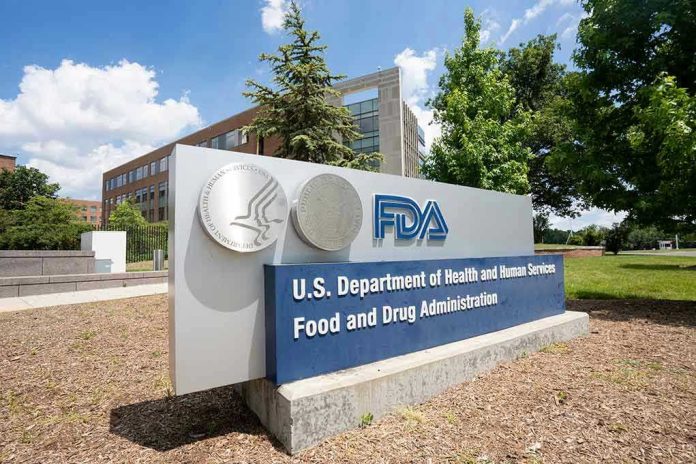
The FDA deliberately ignored its own expert advisory panel’s urgent warnings about deadly Tylenol risks for nearly a decade, allowing thousands of preventable deaths while protecting pharmaceutical industry profits over American lives.
Story Highlights
- FDA advisory panel warned of severe liver damage risks from acetaminophen in 1977 but agency buried recommendations for years
- Hundreds of deaths and tens of thousands of emergency room visits occurred annually while bureaucrats delayed action
- President Trump exposes ongoing regulatory failures by warning pregnant women about potential autism links despite medical establishment pushback
- Outdated OTC drug monograph system enables bureaucratic inertia that prioritizes industry interests over public safety
FDA Buried Expert Warnings for Nearly a Decade
In 1977, an FDA Advisory Review Panel issued clear recommendations for stronger warnings about severe liver damage risks from acetaminophen overdose. The agency systematically ignored these expert recommendations for years while acetaminophen-related poisonings and deaths climbed dramatically across America. This regulatory negligence represents a stunning betrayal of the FDA’s core mission to protect public health, prioritizing bureaucratic convenience and industry relationships over American lives.
Thousands of Preventable Deaths Result from Regulatory Inaction
During the FDA’s decade-long delay, acetaminophen became the leading cause of toxic drug ingestions in the United States. Public Citizen’s Health Research Group documented hundreds of annual deaths and tens of thousands of emergency room visits that could have been prevented with proper warnings. The human cost of this bureaucratic failure extends far beyond statistics, representing real families destroyed by a regulatory system that failed to act on known dangers.
Broken Monograph System Enables Continued Failures
The FDA’s outdated over-the-counter drug monograph system, established in the 1970s, remains notoriously slow to adapt to new safety information. This contrasts sharply with the prescription drug system where the FDA can act more swiftly when dangers emerge. The acetaminophen case exemplifies how this broken system enables regulatory inertia, allowing dangerous products to remain inadequately labeled for decades while bureaucrats prioritize process over protection.
Trump Administration Exposes Ongoing Cover-Up
President Trump’s recent warnings about acetaminophen use during pregnancy have exposed the medical establishment’s continued resistance to acknowledging drug safety concerns. While major nursing and medical organizations attack the president’s statements as “reckless” and “ideological,” they ignore the pattern of regulatory failure that has characterized acetaminophen oversight for decades. The Washington State Nurses Association’s harsh criticism of evidence-based caution reveals how entrenched interests defend the status quo even when American families face potential harm.
FDA Commissioner Marty Makary acknowledges “a considerable body of evidence” about potential neurological risks but emphasizes that acetaminophen remains the only approved OTC fever reducer for pregnancy. This admission reveals the agency’s continued reluctance to take decisive action despite mounting scientific concerns, perpetuating the same pattern of delay that allowed liver damage warnings to languish for years.
Sources:
Trump autism claims latest chapter Tylenol history of controversy
FDA opens review of rules for over counter drugs including acetaminophen
Testimony on safety issues with acetaminophen Tylenol
FDA responds evidence possible association between autism and acetaminophen use during pregnancy
President FDA action on acetaminophen during pregnancy reckless
Autism Tylenol acetaminophen pregnancy







